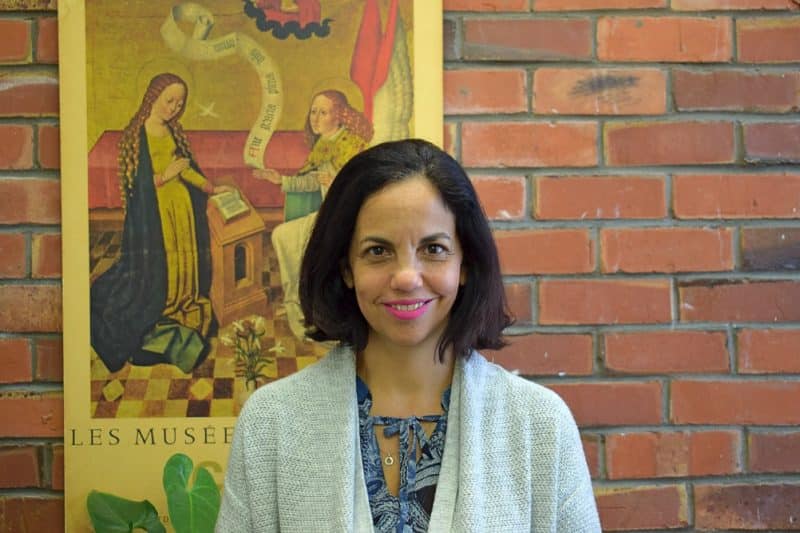In the formation of leaders in the Church, the issue of “spiritual abuse” should be addressed as part of safeguarding policies, while humility and love should be taught as pillars of ministry, theologian and abuse survivor Dr Rocio Figueroa has proposed.
Dr Figueroa spoke at the Australian and New Zealand Association for Theological Field Education (ANZATFE) conference on November 20 at the Anglican Retreat Centre in Vaughan Park, Auckland.
She explained that spiritual abuse is a relatively new term, entering literature and discourse only in the past 20 years.
“It is not easy to talk about spiritual abuse. Many consider that it is very dangerous to talk about it because it would be paralysing for leaders and leadership,” she said.
Unfortunately, she said, it had been proven that “spiritual abuse can happen in any church”.
“The key element of this abuse is the use of spiritual power. And as the leader represents the divine, it can have profound impact on the religious faith of the victims,” she explained.
Dr Figueroa said she was a member of Sodalicio, a lay movement in Peru led by consecrated men that had been rocked by sexual abuse scandals. She drew on the experiences of the members to illustrate abusive leadership.
“Abusive leaders use their ‘spiritual’ power and authority to annul the will and personality of their disciples. At the same time, they become the only source of love and value, manipulating their victims to detach them from all other type of relationships,” she said.
Abusive leaders, she added, use public shaming to keep members under their control, as well as demanding excessive commitment and conformity in the name of God.
“This dynamic creates a distorted image of God: a punishing God focused solely on our performance, threatening dire spiritual consequences for misbehaviour,” she said.
In looking for authentic ministry and leadership, Dr Figueroa examined different models of leadership over the past 75 years. She delved into the “situational approach” of the 1960s to the “transformational leadership” model of the 1980s to the more current “authentic leadership”, which emphasises moral authority as an important feature and “servant leadership”, which is religious in origin.
“For those like me who work on training future leaders for the Church, there is always one important question to ask: what makes a leader an authentic Christian leader? From the models quoted above, the servant model is an interesting idea that may be helpful for our Christian leadership, but I think it is not enough,” she said.
Dr Figueroa pointed out some leaders who were abusive had lots of skills, were kind and were considered good by people in the community.
“It would be necessary to propose a model of leadership which embraces the core of being Christian and being human within both the intrapersonal and interpersonal dimensions,” she said.
This model of leadership should be based on humility and love, Dr Figueroa said. She, then, focused on defining humility.
In the Old Testament, she said, humility is “the attitude of the anawim, the poor of Yahweh, who recognise their dependence on God, living in gratitude for his blessings”.
“In the New Testament, Jesus promised the Kingdom of God to the poor in spirit. Jesus uses himself as an example to follow, something he rarely does in the Gospels, when he teaches humility: “Learn from me, for I am meek and humble of heart” (Matthew 11:29). For Jesus, humility is a central virtue and his incarnation followed the dynamic of humility,” Dr Figueroa stated.
She said that humility is the opposite of abuse of spiritual power.
“This virtue must become the core of the spiritual life for those in ministry so that they develop an attitude of dependence on God, self-awareness of their own limits and an orientation towards others,” she said.

Hi Rowena, I am doing a Master’s in Professional Practice right now. Nearly finished. It is Spiritual Direction, what is the gift of Sd for women going through deconstruction and reconstruction of faith.
It has been a journey of 30 years for me, I’ve been practicing SD for about 22years.
I am looking to connect with people in New Zealand that work in this field. As you say it is relatively new, yet we discovered it in about 1995 when going through things at a church we attended, and in listening to stories of others in this church or who had already left.
In my data there is a significant voice from those interviewed about the Leaders, I am hopeful to design and facilitate learning for Pastors, pastoral care givers, about how to be with women, young women, children when they ask questions, go through crisis in life, in marriage, in faith. Not to label them or alienate them, abuse them.
I am wondering about meeting up with you one day in the near future?
Sincerely Susannah